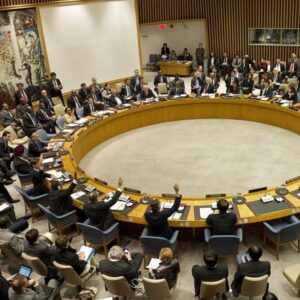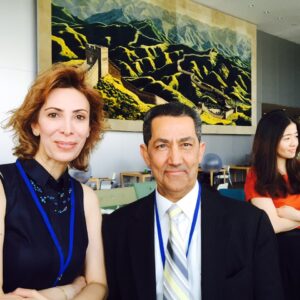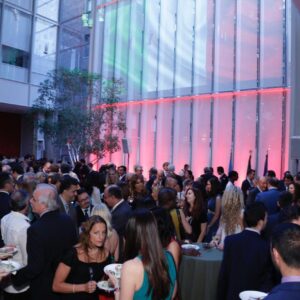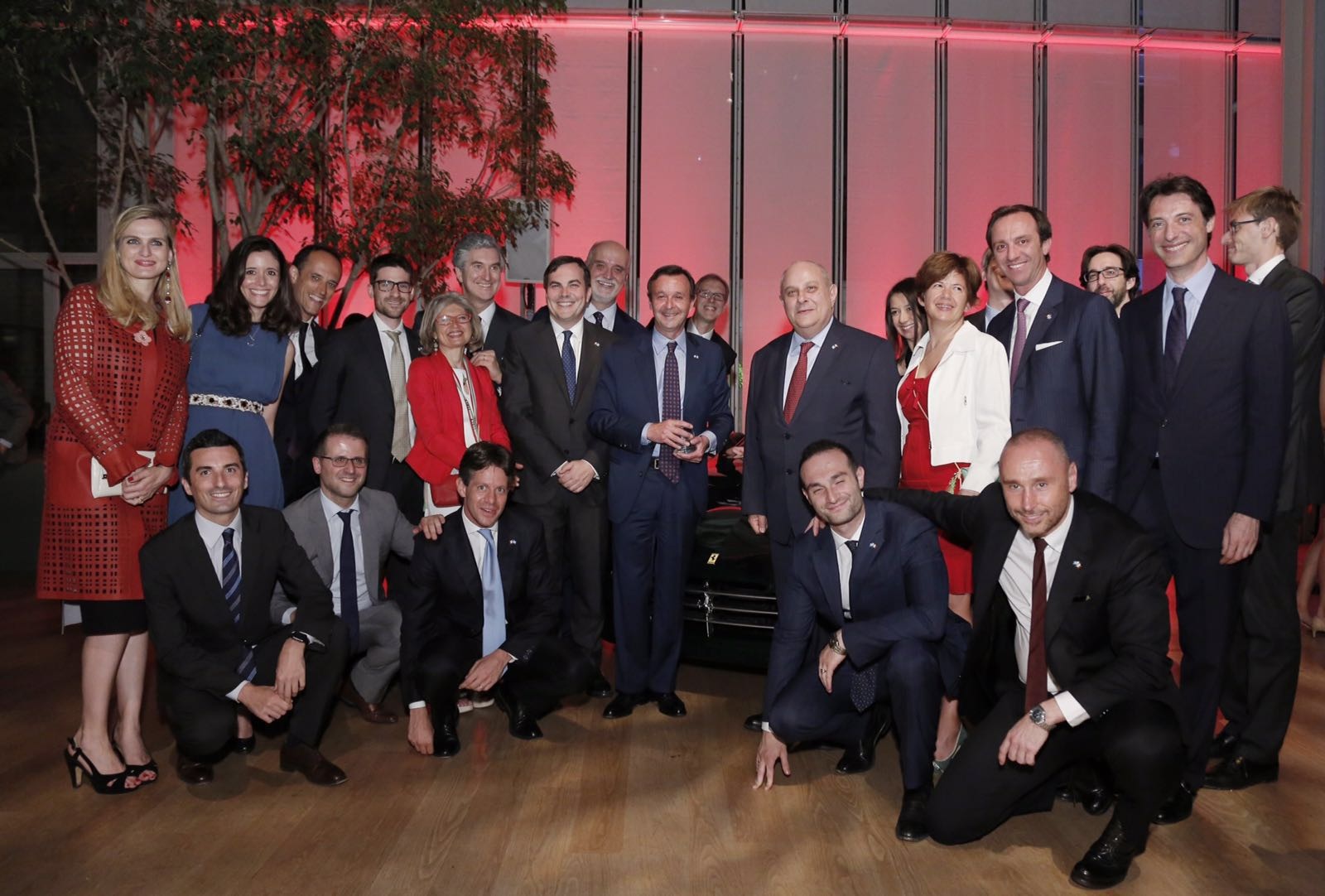While Europe of the Community quivers as a result the British Brexit, Italy of the UN is making concluding remarks in its campaign to be elected to the Security Council (UNSC) as a non-permenant member. On June 28, election day in the General Assembly, Europe will take part already split: Italy will need to deal with two potent rivals, the Netherlands and Sweden, both countries diplomatic heavyweights in the Glass Palace, despite being geopolitically less defined than Italy.

There are only two seats available in these UNSC elections for Western Europe (France and Great Britain are already permanent members) so then the azzurri, the national team for diplomacy, must hope to successfully obtain for Italy at least one vote more than at least one of these other two European countries. Only in this way can Italy have access to the one hall that truly counts in the United Nations for the next two years, in which case Italy would be elected for the seventh time since it became a UN member state 51 years ago.
Voting occurs by secret ballot and missions of the 193 UN member countries will receive from their capitals, just hours prior to election, the names of the countries for which they will vote. This means that the most important “phone calls” are being made across world capitals, yet at the Glass Palace there is still an attempt to win the nice game, trying to leave a positive impression on various diplomats with the hope that, in their remarks and suggestions, they’ll put in “a good word” and influence the decision of their governments…
To review the strengths (and weaknesses) of Italy’s candidacy when compared to the Netherlands and Sweden, read this article published a few days ago. For now, we’ll share with you the last days of an Italian electoral campaign that knew exactly how to win over the hearts of diplomats and officials in the Glass Palace. Last Tuesday, the Italian campaign provided a Lavazza coffee coffee-break and in that same Delegates Lounge, the large room on the second floor of the Glass Palace, there was for the second time a “Free Tasting Italian Gelato.” Here too on June 21 there was a very long line, a great public success. What a queue in front of the cart of L’Arte del Gelato, an Italian ice cream parlor with their head office in Chelsea Market, which was set up in the Delegates Lounge! They served seven classic flavors of Italian gelato tradition: from hazelnut from Langhe (a UNESCO world heritage site in Piedmont, northern Italy) to Sicilian cassata to citrus sorbets. Most popular flavor? Pistachio made with pistachios imported directly from Bronte, a small Sicilian town where they cultivate what is known as “green gold.” Other popular flavors were Sicilian cassata, coffee and hazelnut from Langhe. L’Arte del Gelato, a Sicilian ice cream parlor, was opened at the Chelsea Market in 2005 by Francesco Realmuto, born and raise in Baucina, in the province of Palermo.

Approximately five hundred people were able to try Sicilian ice cream and we from La Voce were standing in line with them, to learn more about what these diplomats, officials and journalists thought about the possibility of an Italian victory over Sweden and the Netherlands. A chorus of voices from the queue was harmonious: “Italy will absolutely win,” even if a few, jokingly, said they would only chime in after tasting the gelato…
When we tried to ask more serious questions (reminder! Voting occurs by secret ballot), a diplomat from the Bosnian mission replied that her name in Italian translates to “Snow White,” but without making any official declaration, flashed a huge fairytale smile to reassure us that a vote from Sarajevo in favor of Rome was very probable. A group of Guatemalan diplomats, laughingly said they couldn’t comment. However, still laughing, they conceded they would share with the Ambassador their opinion on the gelato and that this would become a report for the higher-up in Managua, and if the gelato flavor was right…

For two Middle-Eastern colleagues in line, Abdelhamid Abdeljaber, Palestinian journalist and UN correspondent for Al-Quds Al-Arabi, and Lebanese correspondent Samar Nader for AL-Jadeed TV ( NTV ) and elnashra Newspaper in Lebanon, there is no doubt: Italy will surely win. “Absolutely, the Security Council needs Italy more because of its balanced politics,” says Adbelhaim, who then adds on a more serious note, “With all that is happening in Libya, Syria and in the Mediterranean, with the refugee and migrant crisis, a country like Italy is directly involved and has the right profile to be able to work through these crises, so it’s obvious that they must take precedence over options like Sweden or the Netherlands, countries that are much less important for these crises.” Nader, a Lebanese Christian, first jokes about wanting Italy to win “because here everyone always asks if I’m Italian, so then…” but then solemnly affirms: “I hope Italy is elected to the Security Council because it is more sensitive to the protection of Christians who today are in serious danger in the Middle East.”
Journalist Seana Magee, UN American correspondent for Kyodo News, a Japanese agency, thinks Italy has more of a chance than Sweden and the Netherlands “also because if this long line is for gelato only, I can only imagine how long the line will be for future culinary events post-election…” Magee laughs. In her opinion, Italy and Sweden will take the two seats.
Behind us in line are two young women, UN officials, one American and the other Chinese, who recently arrived to New York and advise they don’t feel they have been here long enough to predict the winners. But when pushed, in the end they said that if it depended on them, Italy would certainly have their vote, with the hope obviously for more food tasting and other culinary treats like this…

The next occasion arises punctually, the next day in fact, when at the Morgan Library, on Madison at East 36th, the Italian mission, led by Ambassador Sebastiano Cardi, with the support of the Italian Consulate and Consul General Francesco Genuardi, organized a grand Italian feast mixing motors, fashion, arte and obviously much food: the delicacies of Lidia Bastianich include a risotto of which the over 400 guests had also seconds and thirds… Representing the Italian government during the reception were two under secretaries of state, Mario Giro and Vincenzo Amendola, sent on behalf of Foreign Minister Paolo Gentiloni. He will be arriving to New York on Monday, in time to give Italy one final push before the vote on Tuesday. Over the last few days, Giro and Amendola have been involved in numerous meetings to sign agreements in an attempt to ensure as many votes as possible in the General Assembly.

Wednesday’s reception at the Morgan Library is a great success, with a very select guest list and many heads of missions present to bring attention to the Italian electoral campaign. We do not see the American ambassador Samantha Power (will the U.S. vote for us? They should, even if the Netherlands and Sweden are countries that claim right) to Washington’s support. The Netherlands, like Italy after all, has a “guarantee” sticker as a NATO country). Nor do we see the Russian ambassador Vitaly Churkin (Putin’s Russia, we suspect, will vote for us), but we did see and chatted briefly with Chinese ambassador Jieyi Liu, just as he was visiting the collection of priceless manuscripts housed in the Morgan Library. When we ask the United Nations head of the Chinese mission his opinion on the race between these three European countries for two seats on the UNSC, clearly Liu is not going to reveal his vote, but from his reasoning, it appears clear to us that China is interested in the geopolitical and strategic weight of Italy in present crisis areas: “I believe Italy’s candidacy to be very important at this time,” the Chinese ambassador told us, “and as for what is happening in the Mediterranean I don’t believe that anyone can deny Italy its geopolitical weight, the importance of which is clear…” Bottom line, will Italy be voted in or not? The Chinese ambassador remains calm and smiling concludes: “I wouldn’t worry about it, if I were you.”
We see Spanish ambassador Roman Oyarzum Marchesi admiring a Ferrari Spider, strangely enough green instead of red, on display in the center of the Morgan Library reception. With the ambassador are his two assistants, who are not speaking about the Security Council elections but rather the European challenge and Monday’s soccer match between Italy and Spain. Marchesi predicts: “a 1-1 draw and then penalty kicks…” When we ask them who would win the Security Council seats, he does not reply and his two assistants kindly explain that Spain’s mandate with the UNSC is coming to an end and they predict that Italy would be a natural successor as a Mediterranean country…
The Namibian ambassador Wilfried Emvula, unable to reveal the vote of his African country, nonetheless reveals to us his admiration for Italy, making us aware that he’s cheering for us – but the decision, we repeat, comes from the capital –; meanwhile, the ambassador of Luxemburg, Sylvie Lucas, very kind in her analysis of the vote, would not give anything away but affirmed that it’s an even race: “Among Italy, Sweden and the Netherlands, there are no favorites: each country has the same chance of winning, and until the last vote is cast from the various nations, the results are unknown.”
This too was the opinion of a very elegant official from the Embassy of Kazakhstan told us that she could not exhibit the winners: “Italy, Sweden and the Netherlands are three countries who have an equal chance of winning.”

Venezuelan ambassador Rafael Ramírez Carreño, like the Spanish ambassador, is a current non-permanent member of the Security Council, and smiles widely when we ask his opinion on who would win. Reminding us that in his country there are so very many Italians, he turns to his wife, Beatrice Sansó de Ramírez, who amused and in perfect Italian says to us: “Not to worry about Italy, Venezuela cannot not vote for it.”
The day after the party at the Morgan Library, we’re still on our quest for predictions. We direct our question back to our fellow journalists that we meet in the corridors of the UN, and their responses make us all the more optimistic.
We ask: “If you were the president of your country and you had to direct your ambassador’s vote for the Security Council Seat, who would you vote for: Italy, Sweden or the Netherlands?” Maurizio Guerrero, of the Mexican news agency Notimex, thinks about it for a moment and says: “Italy: because in at this moment in time there are great crises in the Mediterranean and then in the Security Council, northern European countries are already represented.”
When we asked Sherwin Bryce Pease, Southern African television correspondent for SABC, if he was the person responsible in his country’s government, for whom would he vote, he immediately replies Sweden. “It has a serious politics at the UN on all important points, very active in development, equality, balanced on the Palestine question…” Then on the choice between the Netherlands and Italy, the South African journalist has no doubt: “Italy. The Dutch have a history of colonization in South Africa that we won’t forget, and we definitely cannot vote for them…”
While leaving the Glass Palace we run into another colleague, Palestinian Ibtisam Azem, who writes for al-Araby al-Jadeed from the UN, in the elevator. She too has no doubt: “If I were the president of my country Palestine and I could vote, I would choose Sweden and Italy. They have balanced foreign politics, they are countries that deserve a seat on the Security Council. I would not vote for the Netherlands, who in the Middle East have politics alignes with Israel.
How will it end? Uncertainty to the 11th hour, also because, remember, China’s vote in the General Assembly is as important as the vote of a micro island isolated in the Pacific. We then, even after Monday’s match against Spain, for the next 24 hours in the Glass Palace, we’re destined to keep chanting: Forza Italia!












